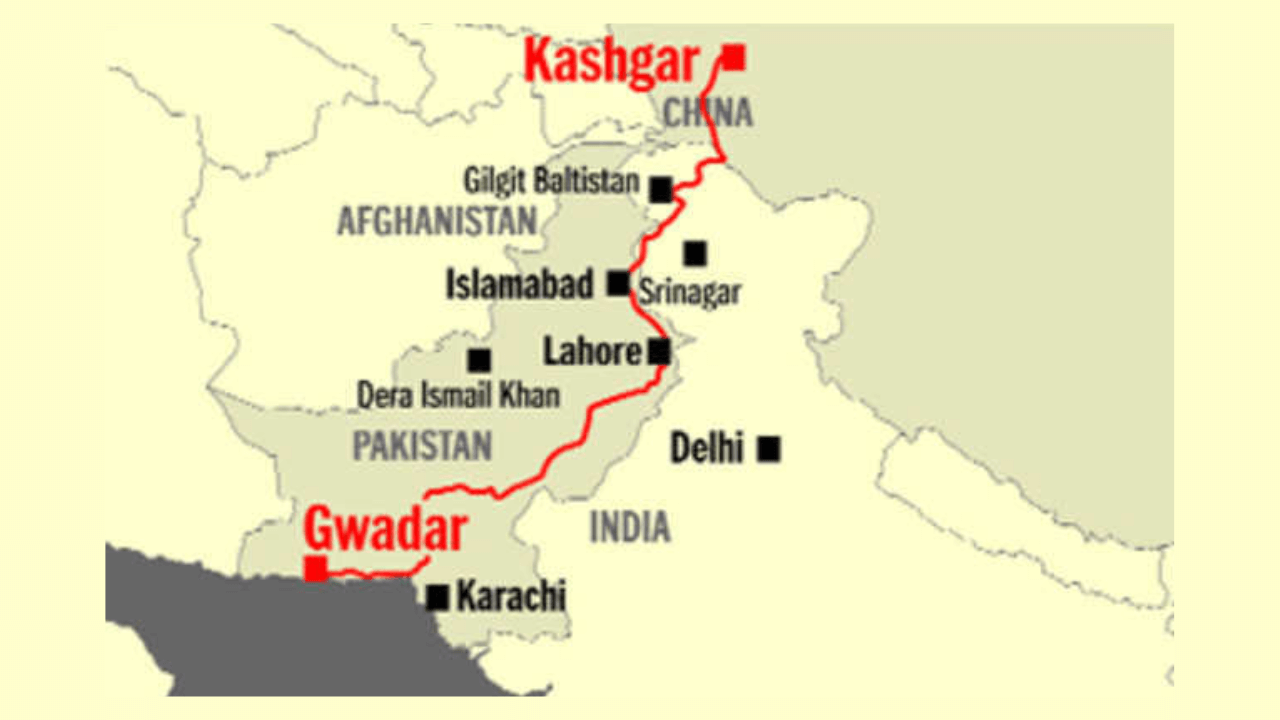Pakistan, China, and Afghanistan have agreed to extend the China-Pakistan Economic Corridor (CPEC) to Afghanistan to strengthen economic ties and enhance regional connectivity. The move is expected to tap into Afghanistan’s potential as a hub for regional connectivity and bring economic benefits to the country. The agreement to extend the CPEC to Afghanistan is part of China’s efforts to expand its economic influence in the region and promote regional cooperation.
More About the News
- The foreign ministers of Pakistan, China, and Afghanistan held the 5th China-Afghanistan-Pakistan Foreign Ministers’ Dialogue.
- They discussed various issues, including good neighborliness, mutual trust, security cooperation, counterterrorism, connectivity, and trade and investment.
- The ministers agreed to prevent any group from using their territories for terrorist activities against any nation.
- They reaffirmed their commitment to further trilateral cooperation under the Belt and Road Initiative (BRI).
- The joint statement was issued on May 8th, two days after the meeting held on May 6th.
- The meeting marked the resumption of the mechanism since the Taliban’s return to power in Afghanistan in 2021.
- They agreed to fully harness Afghanistan’s potential as a hub for regional connectivity and extend the China-Pakistan Economic Corridor to Afghanistan under the Belt and Road Initiative.
- They emphasized the importance of existing projects to enhance regional connectivity, such as CASA-1000, TAPI, and Trans-Afghan Railways.
- The parties agreed to enhance transit trade through Gwadar Port and explore measures for the movement of people and trade activities between the three countries.
- They stressed the need to prohibit any group from using the territories of the three nations to harm and threaten regional security and interests.
- The ministers stressed the importance of exploring realistic pathways towards the revival of the Afghan economy and considering further supporting its reconstruction and exploring trilateral investment possibilities for industrialization and job creation.
- The three countries also urged the international community to assist Afghanistan in countering the cultivation of narcotics effectively and lift unilateral sanctions against Kabul.
- They reaffirmed continued cooperation in areas of mutual interest like economic development, capacity building, and improving livelihoods and agreed to strengthen cooperation in agriculture, trade, energy, capacity building, and border management, among other areas.
What is CPEC?

- The China-Pakistan Economic Corridor (CPEC) is a large-scale infrastructure and development project that aims to connect the Pakistani port of Gwadar with China’s northwestern region of Xinjiang, via a network of highways, railways, and pipelines.
- It is part of China’s Belt and Road Initiative (BRI), which seeks to enhance economic connectivity and cooperation between Asia, Europe, and Africa.
- The project was officially launched in 2015 during a visit to Pakistan by China’s President Xi Jinping.
- It is considered a flagship project of the BRI and is estimated to involve around $62 billion of investment over several years.
- The CPEC project is expected to create a vast transportation and energy infrastructure network that will connect Pakistan’s southern and northern parts, improve Pakistan’s power generation and transmission capabilities, and boost the country’s economy.
- CPEC consists of several major infrastructure projects, including the construction of a deep-sea port at Gwadar, the upgrading and construction of highways and railways, and the building of energy projects such as coal-fired and renewable energy power plants.
- The project also includes the development of industrial zones and special economic zones (SEZs) along the corridor, with the aim of attracting foreign investment and spurring economic growth in Pakistan.
- The project has faced criticism and concerns from some quarters, including India, which sees it as a strategic move by China to gain influence in the region.
- Other concerns have been raised over the environmental impact of the project, its impact on local communities, and the potential for it to deepen Pakistan’s debt burden.
- 3 August Current Affairs 2023 in English
- MoU Between Subroto Mukerjee Sports and Education Society and All India Football Federation (AIFF) to Promote Football at Grassroot Level
- Dr. Mansukh Mandaviya Delivers Keynote Address at the 13th Indian Organ Donation Day ceremony
- Education Ministry Forms Expert Panel on Anti-Discrimination in Higher Education
- Concerns Arise Over Cheetah Deaths at Kuno National Park
FAQs
What is CPEC between China and Pakistan?
Why is CPEC a problem for India?
India has repeatedly expressed its objections to CPEC and has refused to participate in China’s Belt and Road Initiative (BRI), of which CPEC is a part. India has also voiced concerns over the lack of transparency and environmental sustainability of CPEC projects and their potential impact on the region’s fragile security situation.

